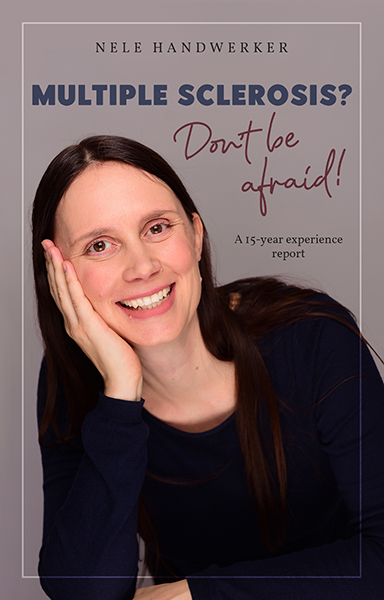This episode is about sleep disorders caused by multiple sclerosis and how they can be treated. Almost three quarters of all people with MS suffer from sleep disorders, which reduce their quality of life to a greater or lesser extent.
Essentially, a sleep disorder means that your deep sleep phase is too short. This often worsens other MS symptoms, especially fatigue. Cognitive disorders and depressive moods also increase. All typical triggers for sleep disorders are quite treatable once they have been clearly diagnosed. You can even counteract minor sleep problems yourself by changing your behavior.
Klicken Sie auf den unteren Button, um den Podcast zu laden.
Table of Contents
How do sleep disorders manifest themselves?
If you regularly sleep badly over a longer period of time, your concentration will suffer. You can no longer remember everything or retain new information. Many people also experience severe mood swings and a loss of composure. The risk of accidents on the road, but also at home, in the garden, in the office or during sport increases. Many people feel tired during the day, fall asleep quickly after a short rest and are less attentive.
This can lead to tension in our dealings with each other, as the other person could interpret your tiredness as a lack of interest.
It also increases the risk of:
- Metabolic diseases, such as gout,
- heart disease, such as high blood pressure
- and dementia diseases such as Alzheimer’s.
What types of sleep disorders occur?
Sleep disorders increase as the disease progresses. The most common causes are insomnia, restless legs syndrome or a sleep-related breathing disorder, although a combination is also possible. A fourth possible cause is depression or fatigue independent of MS.
Insomnia is a disorder of falling asleep and staying asleep. It is diagnosed when the problem occurs at least three times a week for more than four weeks. It can be triggered by bladder disorders, pain caused by spasticity, side effects of medication or depression.
In restless legs syndrome, the legs or arms tingle as soon as they lie still. A pulling sensation may also occur. Movement eases the unpleasant feeling, but movement prevents restful sleep.
In the case of sleep-related breathing disorders, there are significantly more breathing interruptions than normal. Out of self-protection, the body does not allow deep sleep, which could be life-threatening. In this case, sleep may be long but not restful.
Fatigue or depression that is not triggered by MS and is not recognized can also lead to sleep disorders. Thoughts usually circle in a negative spiral, problems are repeatedly replayed without a solution and sleeping through the night is impaired.
How are sleep disorders diagnosed?
First of all, the exact problem or mix of causes must be clear. In any case, talk to your treating neurologist. Together you can consider whether it is enough to fill out questionnaires or whether you should go to a sleep laboratory for one to three days for a precise analysis.
In the sleep laboratory, various values are recorded and analyzed, from your brain waves and oxygen saturation to video recordings that show how often and how much you move. If necessary, the cause can be thoroughly clarified in a relatively short time.
Because only with a clear diagnosis can you be helped effectively.
Which behavioral adjustments help with sleep disorders?
Good sleep hygiene is always helpful. This includes a cool room in which you neither sweat nor freeze, a pleasant atmosphere and a good mattress, which should be changed every few years. Whether you prefer to fall asleep completely quietly or with gentle noises is a matter of preference. Maintain a regular sleep rhythm. Don’t sleep too long and don’t take an afternoon nap if you can’t fall asleep or sleep through the night. Get enough exercise in the fresh air. Avoid digital media shortly before going to bed.
Allow yourself enough breaks during the day and use relaxation techniques such as meditation or yoga to keep your general stress levels low. Imaginary journeys can help you to focus on beautiful things. Try keeping a happiness diary and write down three beautiful moments of the day every evening.
Avoid nicotine, caffeine and alcohol, as they can make restful sleep more difficult or even prevent it. And don’t eat anything that is difficult to digest before going to bed.
If you do wake up at night, ignore the alarm clock, as this will only stress you out unnecessarily. If you lie awake for more than 30 minutes, you can get up and write down thoughts that prevent you from sleeping or do a quiet activity to get tired again.
What aids and medication are available for sleep disorders?
If spasticity or bladder problems are making your sleep worse, treating these symptoms can have a positive effect and make your nights more peaceful.
Obesity can be the cause of breathing interruptions. In this case, you should try to reduce your weight. Special lower jaw splints or nocturnal mask ventilation may also be an option. You may only notice that the treatment is working after several weeks. This is because if you have been missing out on deep sleep for a long period of time, you first have to make up for it. Only then will your well-being improve.
With restless legs syndrome, medication should only be used very sparingly to prevent the opposite effect. Here you should work very closely with an expert.
If the behavioral changes are not enough and you have strong psychological triggers, antidepressant medication can help. There are several types. You may have to experiment a little until you find the right one for you. Please always talk to your neurologist about this.
What can you do in acute phases?
Take short breaks during the day. Make sure you relax mentally and don’t fall into unhealthy habits. Too many stimulant drinks or sweets will not help you. Pay attention in traffic and consciously use the phases when you are alert for important tasks.
Ask for help when you need it. Most people are happy to help. But also try to get to the root of the problem in order to tackle it effectively.
And if sleep disorders occur permanently?
Then you have to be all the more conscious of how you spend your time during the day.
If you have really tried everything from the sleep lab to behavioral changes to medication options, you have to come to terms with the new situation and make the best of it.
What is the best prevention against sleep disorders?
Exercise in the fresh air. Good sleep hygiene. A healthy diet. Normal weight. Abstaining from nicotine. A stable psyche with the ability to deal with difficult situations. Loving people around you who make you happy. Little alcohol. A comfortable bed. And a functioning disease-modifying therapy for all symptoms triggered by MS, so that the disease comes to a standstill or is slowed down as much as possible.
Food for thought
For minor sleep problems – read a book in the evening or try progressive muscle relaxation according to Jacobsen.
For more serious sleep problems – talk to your neurologist about whether it would be useful to have an examination in a sleep laboratory. With the help of a detailed sleep analysis, you can get to the bottom of the cause and then treat it.
Question to you
Do you suffer from sleep disorders?
See you soon and try to make the best out of your life,
Nele
For more information and positive thoughts, subscribe to my newsletter for free.
Click here for an overview of all podcast episodes published so far.

And at many more places.
* This text contains affiliate links. This means that I get a small compensation if you buy the product recommended by me through the link. For you nothing changes in the price of the product. And it helps me to pay for the blog and to write new posts.










